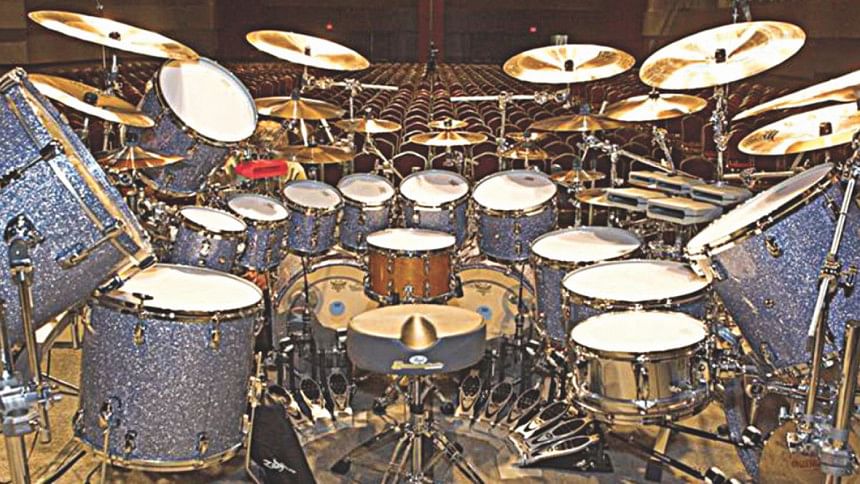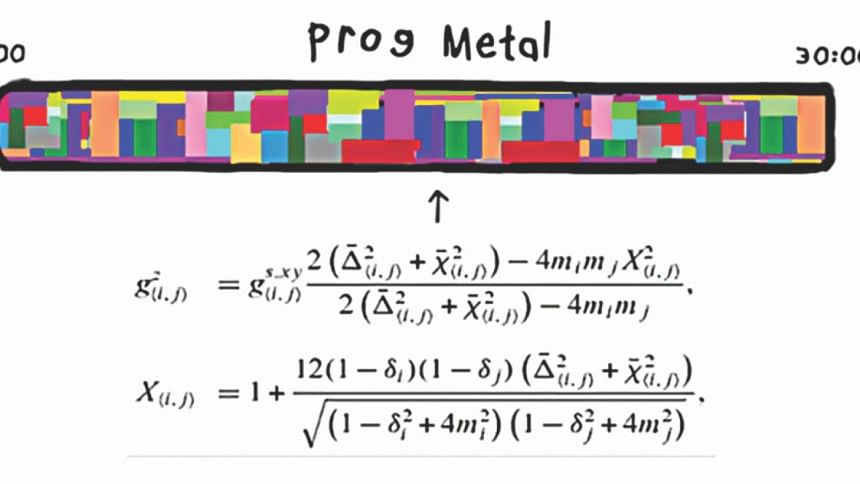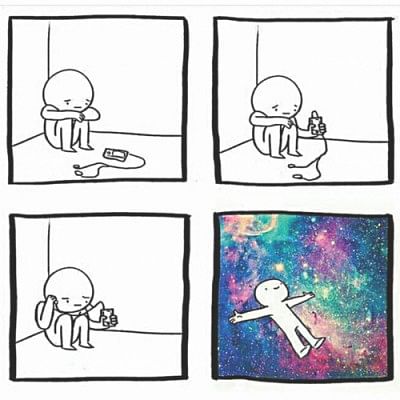How to make a progressive Rock/Metal Song

No, we're not talking about sentient rocks or metals that accept feminism and universal healthcare, but of technically advanced rock/metal music that is suited more for listening rather than dancing. With that being said, here's my documentation of how to make a song of this genre with which I hope to give you an insider's look on how it works.
I consider myself reasonably knowledgeable about this whole thing, but I wanted to know more; only noobs use Wikipedia and YouTube for such purposes. Therefore, I explored various meme pages like "Prog Snob" and "World Prog-Nation".
Armed with the knowledge that progressive rock/metal music existed before Steven Wilson, I went on to listen to various other bands. At least, that's what I initially intended on, but when I started on one of the most talked-about bands, Dream Theater, and found out that they had 14 studio albums with play-times of one hour each, I decided 14 hours were good enough. Plus, the pages hardly ever talked about any other band. Sometimes you'd come across names like Tool and Opeth in the comments section but Tool sounded like music for plumbers, and Opeth sounded like a 21st century remake of Macbeth and I, of course, had standards.

With a solid foundation, I began. The first thing I required was *cue five-minute drum roll* a stopwatch. This would help me make sure the song extended beyond at least ten minutes. If you're wondering why this is necessary, I've learned that any song below a playtime of ten minutes is often described as music for 'normies', and I was determined to be a true 'progger'. I also enrolled in a Mathematics course to learn the necessary calculus required to set the time signature for my prog song. If you don't understand what I mean by any of this, sorry, but the diagnosis is in. It says, "You're a pleb, Harry."
Afterwards, I went on to gather the best musicians. By best musicians, I mean a guitarist, bassist and keyboardist who could shred (blandly) at the speed of light, and a drummer who was in a financial crisis due to his 20 toms, 60 cymbals, and five extra snares that would put student debts to shame. It took us two months to move his drumkit into the studio.
We named ourselves "Reality Cinema" in tribute to our idol band. I would have loved to say we made quick progress, but alas, that was not the case. Even as I write this, I am vividly recalling the epic three-hour long rock-paper-scissors battle between the guitarist and keyboardist because both of them wanted to do a solo that would last for all the ten minutes of the song, while the bassist kept chiming "I won't play the same lines as the guitarist" every minute. The drummer, with his 20 toms, 60 cymbals and five snares, stood at the back unnoticed during this time while I, the vocalist, pondered the meaning of my inclusion in Reality Cinema if 90 percent of the song was instrumental.

We came to a consensus, miraculously, and started working on the lyrics first. It was aptly obscure and would incite a three-year long fan-made philosophy course over its meaning. Perhaps on my deathbed, I would finally tell them I had no idea what I was talking about and had just written it while on the toilet.
Next was the ominous intro we would make. This was the most difficult part, as it had to be three minutes long for 'build-up purposes' and had to be interesting. I can proudly say it was sufficiently lengthy. After this, we skimmed over the first verse (the second verse would be at the end), before setting the backing track of the rest of the song that would be for the guitar and keyboard solos. The drummer wanted to be a part of the composition, but we just programmed the drums and told him to play along. Throughout the session, the bassist stood with his mouth taped because the guitarist got tired of his mantra. After the second verse, we looped back to the intro for panning out the play-time further and ended the song anticlimactically. I now knew its reception would be incredible. I'm not entirely sure if I mean that in a good or bad way, but it would be incredible, because that's what always happens with a prog song.
Now you know how to make a successful progressive rock/metal song. Go, young grasshopper, and always remember: 4/4 is for plebs, 666/29 is for prog.
Rasheed Khan is a hug monster making good music but terrible puns and jokes where he's probably the only one laughing. Ask him how to pronounce his name at [email protected]

 For all latest news, follow The Daily Star's Google News channel.
For all latest news, follow The Daily Star's Google News channel. 



Comments